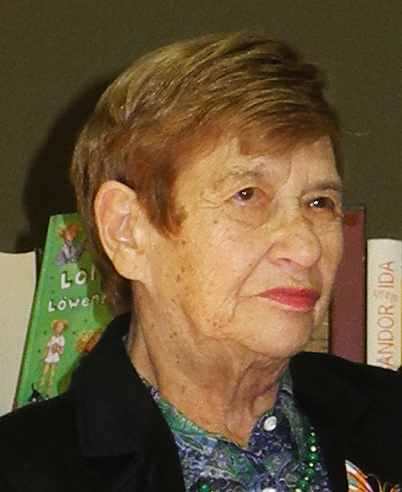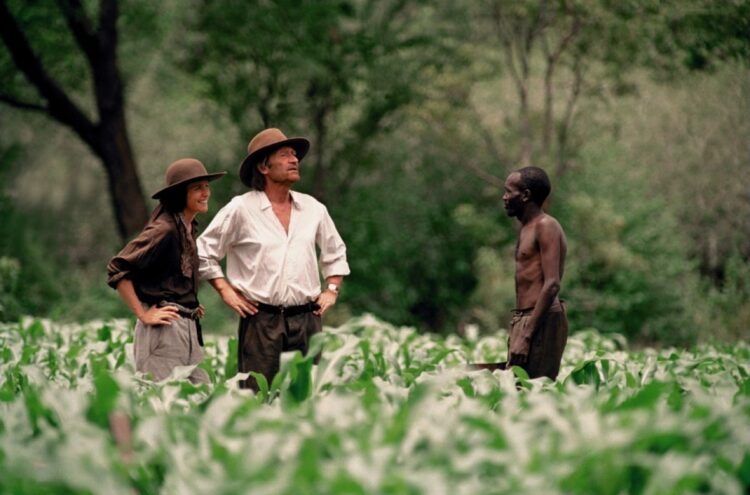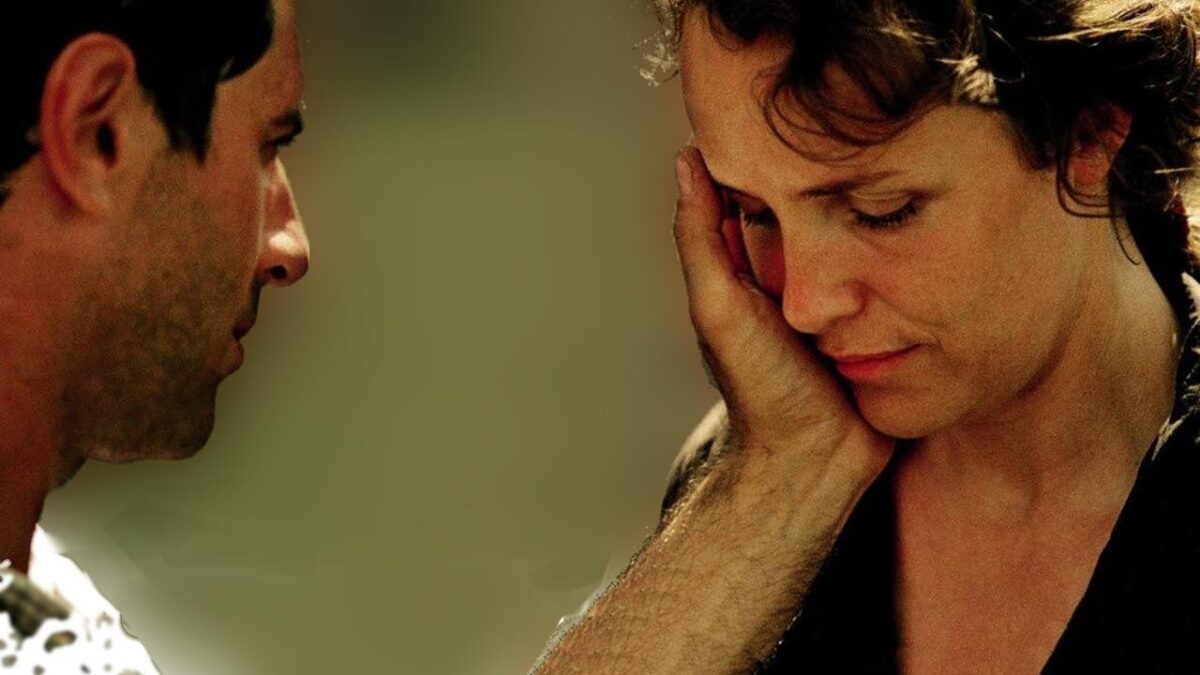Stefanie Zweig and her assimilated secular Jewish family were hounded out of Nazi Germany in the late 1930s. For the next decade, they lived in remote areas of Kenya, a British colony. With the defeat of the Nazis, she and her parents returned to Germany, where she became a journalist and best-selling author.
One of her books, an autobiographical novel, forms the narrative of Caroline Link’s fine German-language movie, Nowhere in Africa. Released in Germany in 2001, and now available for viewing on the ChaiFlicks streaming network, it was the winner of the Academy Award for best foreign film.

It revolves around Walter Redlich, his wife Jettel and their daughter Regina. Walter (played by the Georgian actor Merab Ninidze), a lawyer from Breslau, has settled down as the manager of Rongai, a farm in a faraway corner of Kenya. In January 1938, Jettel (Juliane Kohler) receives a letter from Walter urging her and Regina (Lea Kurka) to join him in Kenya. He asks Jettel to bring a few necessities — a fridge, mosquito netting, kerosene lamps and sturdy shoes.
Jettel and Regina arrive in Nairobi three months later, leaving Jettel’s mother and Walter’s father behind in Breslau. Much to Walter’s annoyance, Jettel has disregarded his instructions and packed fine china and an evening gown in her luggage.
Disappointed by the ramshackle appearance of the farmstead, Jettel yearns to go back home. Walter reprimands Jettel, reminding her she is lucky to be alive and informing her of the Kristallnacht pogrom of the day before. Susskind (Matthias Habich), Walter’s friend and a German Jew who regards Kenya as a safe haven as well, encourages her to persevere.

One can understand Jettel’s disappointment. Rongai is in the middle of nowhere. The landscape is starkly beautiful, but a drought has wreaked havoc on the region. Conditions are primitive, with a pail serving as a shower nozzle. The silver lining in the dark clouds is Owour (Sided Onyulo), a cheerful, hard-working Kenyan who prepares their meals.
Regina fares well in Rongai. She befriends Owour and the children in the vicinity, gradually learns Swahili, and quickly adapts to the country. Unlike her mother, she is not a fish out of water.
With the outbreak of World War II, the Redlichs are detained as enemy aliens. Walter is sent to an internment camp, along with other German nationals, while Jettel and Regina are confined to a hotel in Nairobi.
During this interval, the anti-German owner of Rongai notifies the Redlichs they are no longer welcome to live there. In desperation, Jettel appeals to the leader of Nairobi’s Jewish community for help, but he is unwilling to cooperate. A British army officer fluent in German offers to assist Jettel, but his price is high. She agrees to his demand, and the Redlichs soon find themselves on another farm.
In 1940, Walter receives a frightening letter from his father, Max, in Germany. The Nazi regime has banned Jewish emigration, and Max is scared for the first time in his life. Jettel is thrown into despair when she learns that her mother has been sent to Poland.
The Redlichs send Regina to a private school in Nairobi. Regina excells in her studies, though the school’s British principal is antisemitic. Regina, the teenager, is portrayed by Karoline Eckertz.

The war ends and newsreel footage of the 1946 Nuremberg war crimes trial flashes across the screen. Walter is offered a plum job in the new democratic Germany, and he accepts. He’s an idealist and considers Germany his home. Jettel, having adapted to Kenya and bristling with hatred toward Germany, is not yet ready to return.
Nowhere in Africa, exceptionally well-crafted, recreates a time and a place with clarity and empathy thanks in no small part to the lead actors, who sink seamlessly into the skins of their respective characters. It reminds us of an awful era when Germany was in the hands of barbarians and Jews were the victims of relentless persecution and genocide.
